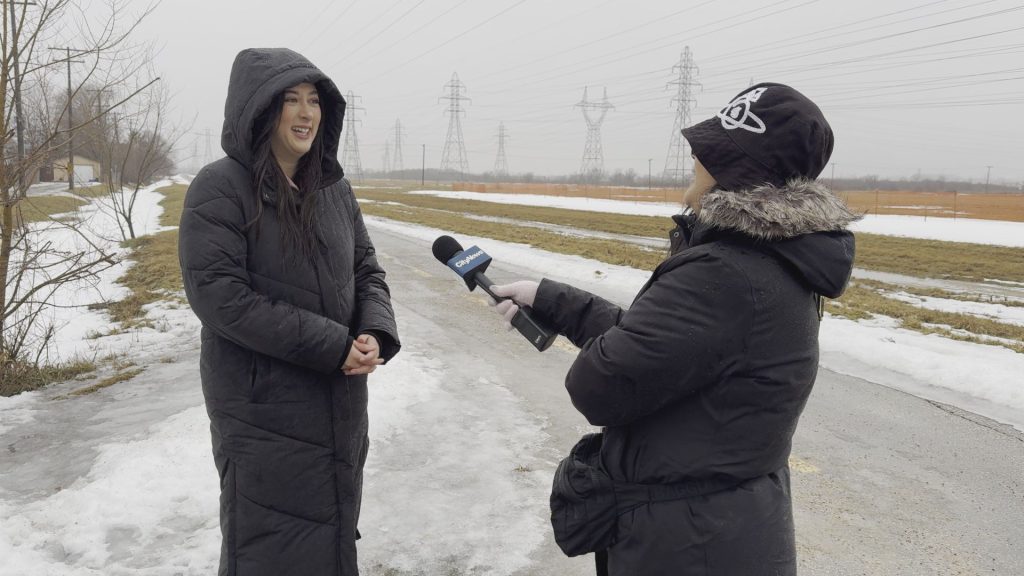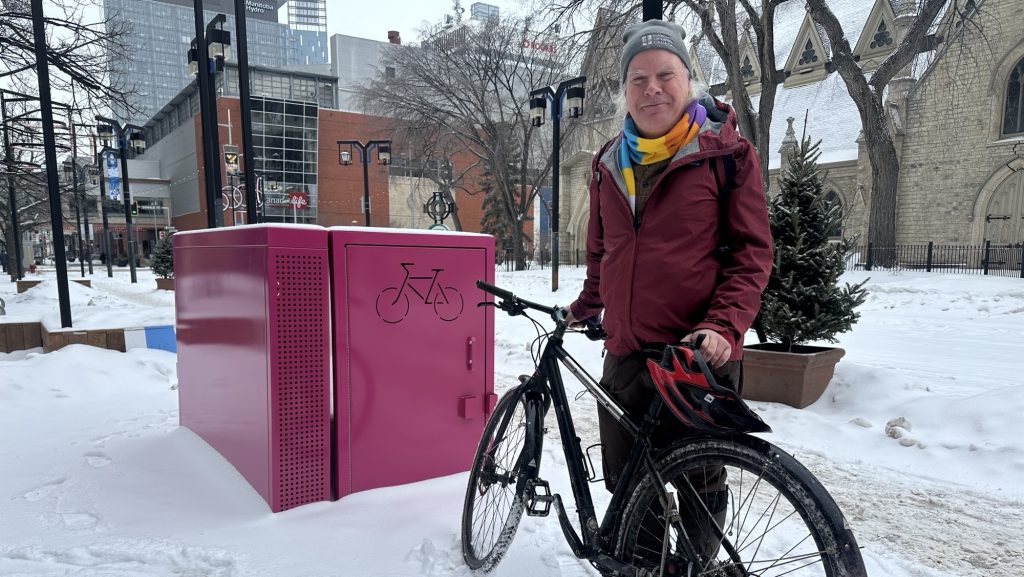Staying active is important even if New Year’s resolutions fade: Experts

Posted February 8, 2024 3:05 pm.
Last Updated February 8, 2024 3:16 pm.
Experts say mid-February is when motivation for many New Year’s resolutions begins to wane. With an abnormally warm but wet month, some may find it extra difficult to get outside and exercise, but the importance of staying active never goes away.
“January as a month sets certain new years resolutions or certain goals for the year is a little bit misleading because you’re setting yourself up for failure if you are saying, I’m going to set all of these goals now and if they’re not accomplished then I’m not going to do any of them. But what about the other 11 months of the year?” asked Dr. Jay Greenfeld, a clinical psychologist.
“The spike of new years resolutions starts to taper off by February. What ends up happening is that people start to either foil the plan completely and say, well I didn’t reach my goals in January so there’s no point to continue.”
Greenfeld, says the unusual weather in Winnipeg can affect people’s mood and willingness to exercise, though it hits in a different way than it does at the beginning of winter.
“Now we’re a few months in and it’s really hard to climb out of that so people become slightly sullen or they become a little bit frustrated because it’s misleading. It’s raining out there and it’s kind of nice enough to be outside because it’s not freezing, but it’s wet,” said Dr. Greenfeld.
RELATED: Winter festival encouraging everyone to get out and beat seasonal depression
“It shifts from, here are some options to I can’t do anything so I’m going to do nothing. So that extreme way to think is what can often paralyze people both physically and mentally.
“We can’t change our circumstances except our perspective on them. That’s what’s going to make a difference. So if it’s raining too much, dress appropriately. If it’s too cold, dress warmer. If it’s something that you don’t want to go outside, then start to think of other options that you can do indoors.”

“I just look at it like a challenge,” said Ashley Gulakow, a content creator from Winnipeg. “It’s cold out. Dress for the weather. You’re always going to feel better, especially when you get outdoors when it’s not the best weather conditions. Afterwards, you’re always going to feel like you did something that, you maybe didn’t want to, but feel better after.
“I think it’s really important to find ways that you like to move your body. Getting outdoors for me is something that’s like, good for my mental health. I always feel better after. You get sunshine – not really today, but – fresh air is good for you, too.
“I just feel lighter. I’m more patient with my kids. I feel like I have more energy and my mental health is always just boosted afterwards.”
Gulakow works by herself and from home, so she has to prioritize getting either outside or finding other ways to get moving.
“Dress for the weather. We live in Winnipeg, it’s always unknown what it’s going to be. Try and find a way that works for you, that you can actually look forward to every day so you don’t become unmotivated when it comes to thinking about doing that workout,” she said.
“I invested in a treadmill last year. We have it in our basement. I will throw a show on my phone and just start walking. Or there’s YouTube videos you can do, they’re free, or tons of local businesses offer workout programs that are now online.”
Gulakow, who also worked with non-profit organization ParticiPACTION last month to inspire people to keep active, says she’s seen many people announce new year goals on social media – noticed frustration when results don’t come quickly or when people get bored of the same exercise routines. She says New Years resolutions are arbitrary – goals can be set anytime.
“It’s never too late to start again. Just start again. Every day can be either your day one or one day kind of thing. I always look at it as, every day is a fresh start. So maybe your goals weren’t committed yesterday but you can always start over today and keep it fresh,” she said.

“If it’s hard to set the goals, start by the week,” Dr. Greenfield added, “Don’t worry about the month, don’t worry about the calendar. Just say, today’s Monday and by Friday I want to do the following things twice this week, then we go from there. The calendar is actually irrelevant.“
“Keep at it, don’t let the calendar determine when you’re going to do this stuff or not. For sure, don’t let the weather interfere with it because there is a lot of potential to be active, to remain active and to reap in those benefits.”
Greenfeld says there’s always a way to stay active, even if that means getting creative.
“If you’re providing that sort of reason, I can’t do this because it’s outdoors, well then what are the options for you to do indoors? It doesn’t have to be something you do every week, and it doesn’t have to be something you do every day, but start to create a list for yourself so you at least have options. Because again, you can’t change the circumstances. We don’t know how much snow is coming,” said he said.
“We don’t know if any snow is coming. It doesn’t really make a difference. Whatever comes our way how do we change our perspective based on what we can control in the situation? Can’t go outside, what can you do inside. If you can’t go for 2 hours, what can you do for 45 minutes. If you can’t go with 2 or 3 friends, what can you do by yourself.”
Greenfeld says people can help motivate each other by setting an example, and encouraging others to do what they can until warm weather comes.
“Set the example for the people that you’re around. Set the example for, if you’re parents, set the example for your kids. If you’re kids, set the example for your friends. Set the example because other peopel will gravitate toward that and as soon as they say something like, good for you for doing that – I can’t do that. Use that as an opening and say yeah, you might not be able to do that, but you can try this with me,” said Dr. Greenfled.
“There really aren’t any true, legitimate barriers to starting exercise and doing it. They’re barriers that we create ourselves. When you start to evaluate the barriers that you’ve placed on yourself, write them out and pick them apart.
“It’s a skillset of resilience that, it doesn’t matter what your circumstances are, you’re going to persevere.”








